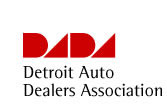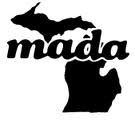Office parties can present a whole “host” of liabilities for dealers, regardless of whether the parties are scheduled to celebrate the holidays, improve employee morale, or serve as an opportunity for employees to socialize with one another outside of the workplace.
If a dealership employee consumes too much alcohol at an office party and conducts himself or herself inappropriately, such as flirting with, touching, groping, or propositioning another employee, your dealership could be forced to defend a sexual harassment claim even though the actions took place outside of the normal day-to-day dealership setting.
Liability for a dealership could also extend beyond the company gathering. For example, should a dealership employee or a guest become inebriated and later decide to drive a vehicle, he or she may end up causing an accident where injuries are sustained. As a result, the dealership could be sued. Under some circumstances, the dealership may be successful in defending a lawsuit with minimal legal costs. However, there may be circumstances in which your dealership could be forced to confront an expensive and costly lawsuit, especially if serious injuries or death result.
So, how do dealers avoid liability while still providing an enjoyable time for everyone? We emphasize three things that should be done to protect the dealership: First, dealers should not make employee attendance at any social event mandatory. Second, dealers should never serve alcohol to minors. Finally, dealers should prevent employees who consume alcohol at the party from operating a vehicle owned or leased by the dealership, since the dealership, as the owner of the vehicle, is liable for any injury or damage caused by the negligent acts of authorized drivers. While these three items remain important, we have also provided a list of other suggestions that dealers should consider as they plan their social events:
- If dealers wish to serve alcohol, designate “spotters” to make sure that people who have consumed too much alcohol do not leave the party alone or become “too friendly” with others at the party.
- Reduce the risk of overindulgence by avoiding hard liquor entirely and serving only beer and wine, along with a variety of non-alcoholic beverages.
- Do not provide free alcohol or, if doing so, limit the number of free drinks provided. Often employers will issue a reasonable number of drink tickets to each employee, depending on the length and type of event.
- Instruct those who are catering or serving the alcohol that they must refuse to serve anyone who appears to be intoxicated or shows signs of intoxication.
- Host the event at an establishment other than the dealership.
- Restrict the time during which alcoholic beverages are served, preferably only before dinner and not during or after, and close the bar at least an hour before the party ends.
- Arrange transportation for intoxicated employees by having designated drivers or using a transportation service.
- Consider having a luncheon where it is less likely that employees will consume too much alcohol.
Make the party a family affair and include spouses and/or children. - Set a tone of moderation before the party by distributing interoffice notices reminding employees to be responsible, discouraging excessive drinking, and indicating what measures the dealership will take to ensure a safe event.
- As dealers know, incidents arising at a party can have the same legal repercussions as if they occurred during normal business hours on dealership property. Therefore, dealers should send a clear message that, although the holiday party is not a required work-related activity, inappropriate conduct will not be tolerated and can give rise to discipline or termination in accordance with dealership policies.
- Review the dealership’s general liability policies to determine whether there is insurance coverage for this type of function. If there is no coverage, consider acquiring a “special events” rider to cover the single function where alcohol will be served.
Any dealer who wishes to host a function where alcohol is served must be aware of the dealership’s potential liability for the actions of employees or other guests who become intoxicated at the function. The preceding measures should help dealerships minimize liability from alcohol-related incidents.
If you have any questions regarding social host liability, please do not hesitate to contact a member of our Dealer Practice Group for guidance at (248) 645-9300 or by email.
Chuck LeFevre – [email protected]
Lawrence F. Raniszeski – [email protected]
Michael J. O’Shaughnessy – [email protected]
Eric R. Bowden – [email protected]
Alycia Pallach Wesley – [email protected]
Nicholas J. Ranke – [email protected]




